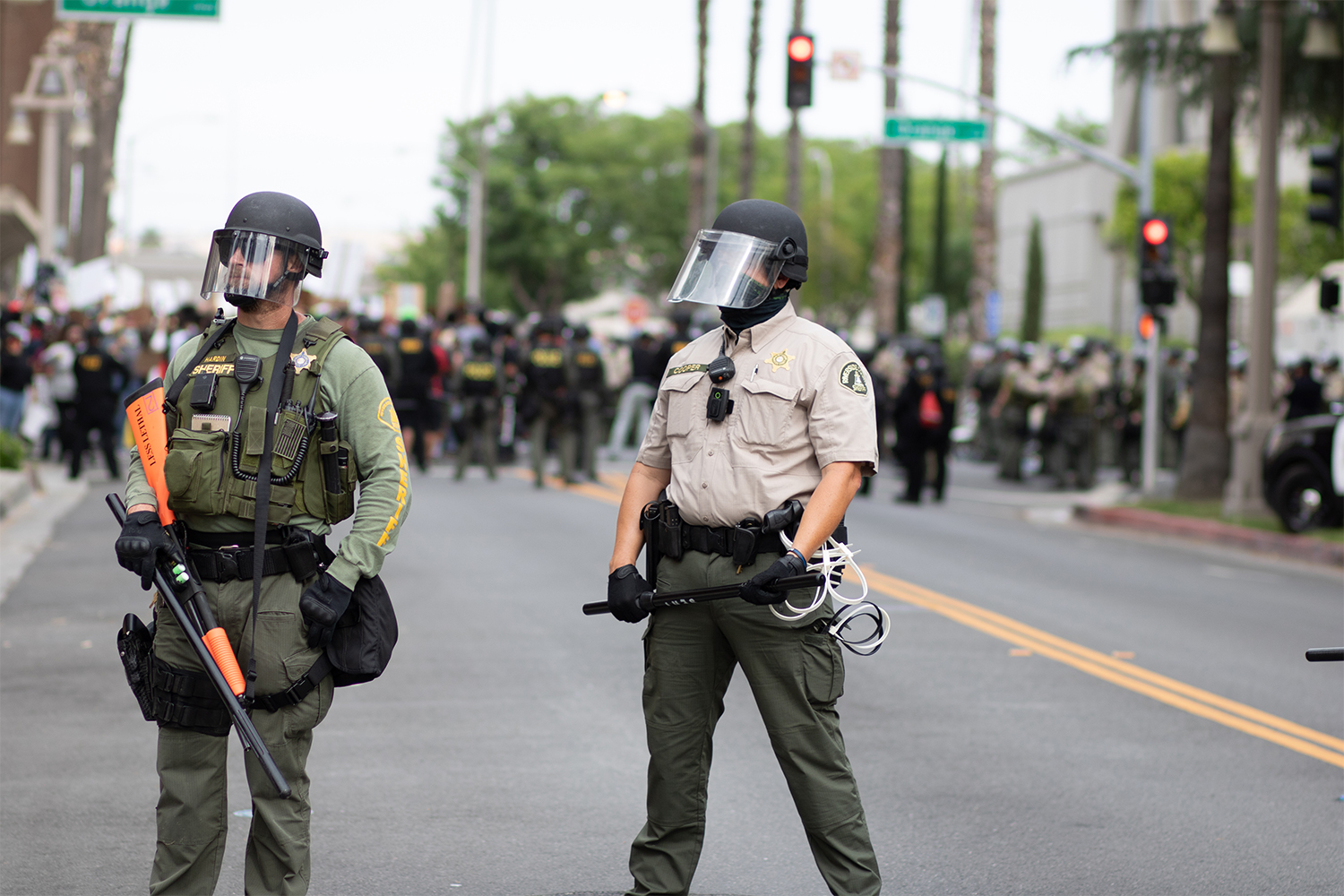Amid the need for accountability during a Black Lives Matter protest, cops are shown with protective gear and weapons. Photo by Nova Blanco-Rico.
By Nova Blanco-Rico, Photo Editor
Due to the recent calls for police reform and accountability for the brutal actions of police officers, universities have found themselves in need of discussions of systematic racism, unlawfulness in the justice system, and the ever-prevalent demand for change.
California State University, Dominguez Hills started making changes with the implementation of the Racial Reconciliation Task Force, which aims to identify racial inequities in the university and host workshops that speak on the systemic racial injustices within education, police, and government foundations.
The most recent workshop, put together by the College of Business Administration and Public Policy happened last week titled, “Policing the Police: My story as a civil rights attorney.”
Dale K. Galipo was the guest speaker of the event. He is one of the most prominent civil rights attorneys in the country, graduating from the University of California, Los Angeles School of Law. He’s obtained numerous multi-million dollar jury verdicts for victims of police misconduct and abuse in nearly 20 years. As well as being awarded the Consumer Attorneys of California’s Consumer Attorney of the Year in 2020.
“At one point the statistics were that out of 20,000 police officer shootings, only one officer was prosecuted,” Galipo said.
This is one statistic in Galipo’s life’s work as a civil rights attorney, that demonstrates the unfairness in the prosecutions of police officers.
At the event, Galipo spoke on his story of becoming a civil rights attorney and the experiences, hitting on the lack of punishment for police and justice to the victims of police violence.
“Yes we want to support the police, but there has to be some boundaries,” Galipo said. “ There has to be some accountability, we have to expect better of our police.”
According to mappingpoliceviolence.org, a crowdsourced database dedicated to giving the most accurate number of police killings in the United States, from 2013 to 2021 there have 1,358 deaths by police officers in California.
He pointed out the double standard that is prevalent in the police system. Meaning that a police officer wouldn’t be judged by the law for murder the same way any other person would. Galipo correlated the unfairness to how many district attorneys, who work with the police often, wouldn’t want to prosecute a police officer because the police unions are powerful.
“I have probably handled hundreds of [police] shooting cases and the other thing that I learned is that there is no criminal prosecution virtually ever,” Galipo said.
Galipo went on to explain that there weren’t a lot of prosecution cases before the last couple of years. Stating that the cases in the last few years are rather new and that even now around 1 out of 1,000 cases are the police criminally prosecuted.
The speech from Galipo made it clear that there needs to be some change and accountability for the police’s actions, whether this change would affect police within universities by making changes to their policies or budgets.
However, CSUDH campus police will not see any changes to their budget. During a virtual open forum on Feb. 19, with the CSU Chancellor Joseph I. Castro, President Thomas A. Parham stated that the campus police are “under-resourced.”
“I want to make sure we protect our people and our possessions that are so vitally important so I don’t anticipate any significant changes in allocation to public safety across the system,” Parham said.
At the event, Galipo explained the dark truth of an unchecked police force. He expressed that in his findings, police officers who shoot once will shoot again. So it’s important that justice and change occur to stop police brutality.
Although times continue to be unprecedented within the justice system, he advises people the way to make a change is to look forward and continue being strong.

